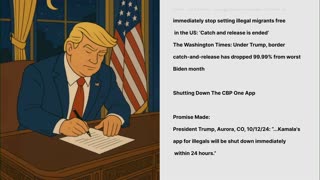Premium Only Content

"Defiance: A Nation's Stand Against Tyranny"
Constitutional rights refer to the fundamental rights guaranteed to individuals by a country's constitution. These rights are typically designed to protect the individual from government infringement and ensure certain freedoms and protections. The specific constitutional rights can vary from country to country, but they often include the following:
1. Freedom of speech: The right to express opinions without censorship or restraint.
2. Freedom of religion: The right to practice one's religion or to have no religious beliefs without interference from the government.
3. Right to bear arms: The right to own and carry firearms, a right often enshrined in the constitutions of certain countries.
4. Right to privacy: Protection against unreasonable searches and seizures, and the right to privacy in personal matters.
5. Right to a fair trial: The right to due process, including the right to a fair and speedy trial, the right to legal representation, and protection against self-incrimination.
6. Freedom of assembly: The right to peacefully gather and protest without interference from the government.
7. Right to equality: Protection against discrimination based on race, gender, religion, or other characteristics.
8. Freedom of the press: The right to a free and independent media, and protection against censorship.
These rights are often considered fundamental to a free and democratic society, and they are intended to ensure that individuals are protected from government overreach and have the opportunity to participate fully in public life.
-
 16:10
16:10
Cowboy Kent Rollins
2 days ago $6.27 earnedSalisbury Steak Recipe | Hungry Man TV Dinner Remake
35.3K17 -
 44:22
44:22
Tactical Advisor
6 hours agoFinished My Dream AR15! | Vault Room LIve Stream 022
39.2K6 -
 LIVE
LIVE
FusedAegisTV
6 hours agoMay The 4th! KOTOR Remaster MOD - The Best Star Wars Game of ALL TIME | Western Retread #4
153 watching -
 LIVE
LIVE
The White House
2 days agoLo-Fi MAGA Video to Relax/Study To 🇺🇸
500 watching -
 LIVE
LIVE
GritsGG
7 hours ago#1 Warzone Win Grind! 🔥
90 watching -
 5:04:28
5:04:28
Grant Cardone
10 hours agoReal Estate Interactive DAY 2
76.2K4 -
 16:55
16:55
Stephen Gardner
1 day agoBUSTED! Letitia James STOLE $41k in Tax Payer Funds for LUXURY PRIVATE JETS!!
148K296 -
 2:09:16
2:09:16
TheItalianCEO
8 hours agoI LOVE Metal Gear Solid - Metal Gear Solid V
43.3K2 -
 17:41
17:41
DeVory Darkins
2 days ago $105.76 earnedTrump DEFUNDS NPR as Jobs Report drops BAD NEWS for media
93.7K203 -
 50:11
50:11
Squaring The Circle, A Randall Carlson Podcast
1 day ago#046 The Dynamic Planet: Understanding Global Climate Change - Squaring the Circle
50.4K22